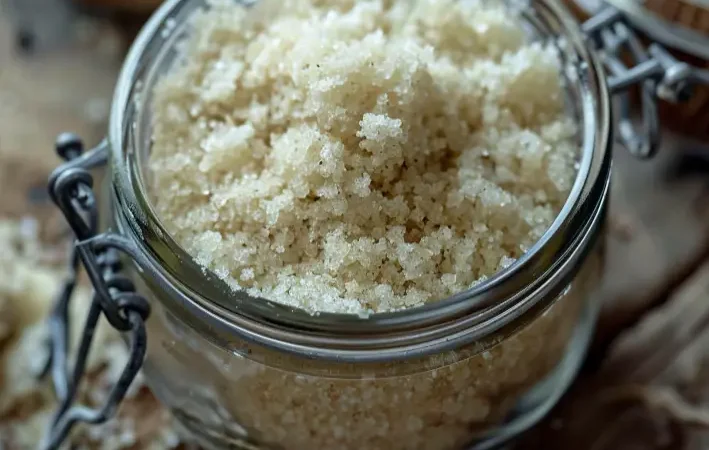Propylene Glycol Alginate
Characteristic
Sodium alginate is soluble in water, but its solubility diminishes in acidic conditions or in the presence of high calcium levels, resulting in the formation of alginic acid or calcium alginate. Many industrial products, such as certain cosmetics, pharmaceuticals, and calcium-rich formulations, may require a solution that remains stable in acidic environments, where sodium alginate cannot perform effectively.
In these scenarios, Propylene Glycol Alginate (PGA) provides a suitable alternative. PGA dissolves in water to form an acidic solution, allowing it to stabilize and thicken even in low pH conditions, making it more versatile than sodium alginate.
The presence of the propylene glycol group in PGA prevents the carboxyl group from dissociating in water, thus making it resistant to crosslinking with calcium ions. This unique property makes PGA an excellent stabilizer in products like dairy-based cosmetics and pharmaceuticals.
Furthermore, PGA’s unique structure, which combines a hydrophilic alginic acid backbone with a lipophilic propylene glycol group, gives it surface-active properties that are not found in other alginates. This makes PGA highly effective as both a thickener and an emulsifier for oil/water systems.
The functional properties of PGA can be tailored based on the degree of esterification, which refers to the proportion of esterified carboxyl groups in the structure, and can be adjusted to meet specific application requirements.
Applications

Food Applications
PGA does not gel when exposed to polyvalent cations and is stable in an acidic pH range (3-5). This makes it a useful thickener and stabilizer for foods with low pH or high calcium content.
It is commonly used as an emulsifier in salad dressings, often in combination with xanthan gum to enhance stability. PGA is also employed in acid milk beverages to prevent separation and maintain a uniform dispersion.
A unique application of PGA is in beer production, where it serves as a foam stabilizer. By adding a small amount of PGA to fermented beer, a fine, lasting foam is created when the beer is poured.
PGA is also used to improve the texture of products like bread and noodles. In bread dough, it significantly boosts volume and elasticity, contributing to a better overall texture.
With its ability to perform in acidic environments and its emulsifying and stabilizing properties, PGA is a versatile ingredient in a wide range of food applications.

Cosmetic Applications
PGA is stable in an acidic pH range (3–5) and does not gel in the presence of polyvalent cations. This makes it an ideal thickener and stabilizer for cosmetic formulations containing calcium or requiring a low pH.
PGA is often used in skincare and haircare products, where its stabilizing properties prevent separation and enhance texture. It’s commonly found in emulsions such as creams, lotions, and serums, where it helps maintain uniform consistency and improves the sensory feel of the product. Its surface-active nature also makes it effective in products that need both water and oil phases to remain stable.
In addition, PGA’s ability to form stable emulsions is crucial in products like moisturizers and sunscreens, where consistent texture and stability are key.

Pharmaceutical Applications
In the pharmaceutical industry, PGA is used for its stabilizing and thickening properties in drug formulations, particularly in liquid suspensions, topical creams, and gel-based products. It helps maintain uniformity in emulsions and improves the overall texture of oral and topical preparations.
PGA’s ability to function effectively in acidic environments makes it particularly useful for pharmaceutical applications involving products that are sensitive to pH, such as certain oral syrups or topical treatments. Additionally, its resistance to calcium-induced crosslinking makes it an excellent choice for formulations that require stability in the presence of calcium-rich ingredients, such as in calcium supplements or dairy-based formulations.
Its unique emulsifying properties allow it to stabilize complex formulations, enhancing both the efficacy and user experience of pharmaceutical products.
